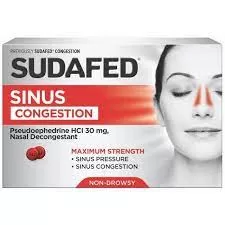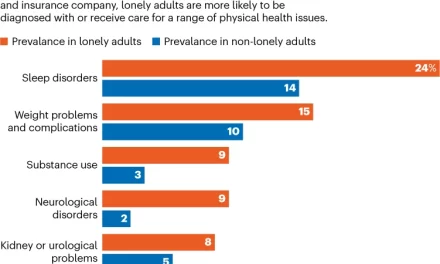
French health authorities have issued a warning against the use of a popular nasal decongestant due to its potential to increase the risk of strokes and heart attacks, as reported by various media outlets.
France’s medicines agency has stated that oral nasal decongestant medications containing pseudoephedrine can elevate the risk of stroke or heart attack. This active ingredient is found in products such as Sudafed, Galpseud, Boots Decongestat, Care Decongestant, Actifed Rhume, Doliruhm Paracetamol and Pseudoephedrine, as well as Humex Rhume, among others.
Christelle Ratignier-Carbonneil, the director of France’s National Agency for the Safety of Medicines and Health Products (ANSM), emphasized, “The message is clear. Do not use them. We do not risk getting a stroke for a stuffy nose,” in an interview with the public broadcaster FranceInfo.
Many of these medications are available in the form of oral tablets without requiring a prescription, or as a nasal spray with a prescription, according to ANSM.
Pseudoephedrine, a widely used decongestant, operates by constricting blood vessels in the nasal area. However, it can also narrow blood vessels in other parts of the body, potentially leading to elevated blood pressure and heart rate, as reported by Euronews.
While this common decongestant is generally considered safe for most individuals, these advisories underscore the importance of consulting healthcare professionals before initiating any new medication, especially for those with pre-existing health conditions or individuals taking other medications.
Belgian health authorities have stated that the benefits of these medications outweigh the minimal risk of serious side effects. They argue that the benefit-risk balance for cold medicines containing pseudoephedrine remains positive, given the extremely rare occurrence of serious side effects and the effective relief these medicines provide for cold symptoms, as reported by BNN Breaking.
Meanwhile, the US Food and Drug Administration (FDA) recently determined that another drug called phenylephrine is ineffective. This component is used as a substitute for pseudoephedrine in some nasal decongestants. This decision was reached unanimously by 16 members of the FDA’s Nonprescription Drugs Advisory Committee (NDAC), who concluded that oral phenylephrine, found in common medications like Sudafed, Mucinex, Vicks, Allegra, and Dayquil, does not effectively alleviate nasal congestion.
The FDA further clarified that these cold medicines do not pose any safety concerns associated with the recommended dose of oral phenylephrine. Instead of using a nasal decongestant, ANSM recommends humidifying the nasal passages with a saline spray, sleeping with the head elevated, staying adequately hydrated, and ventilating living spaces.










